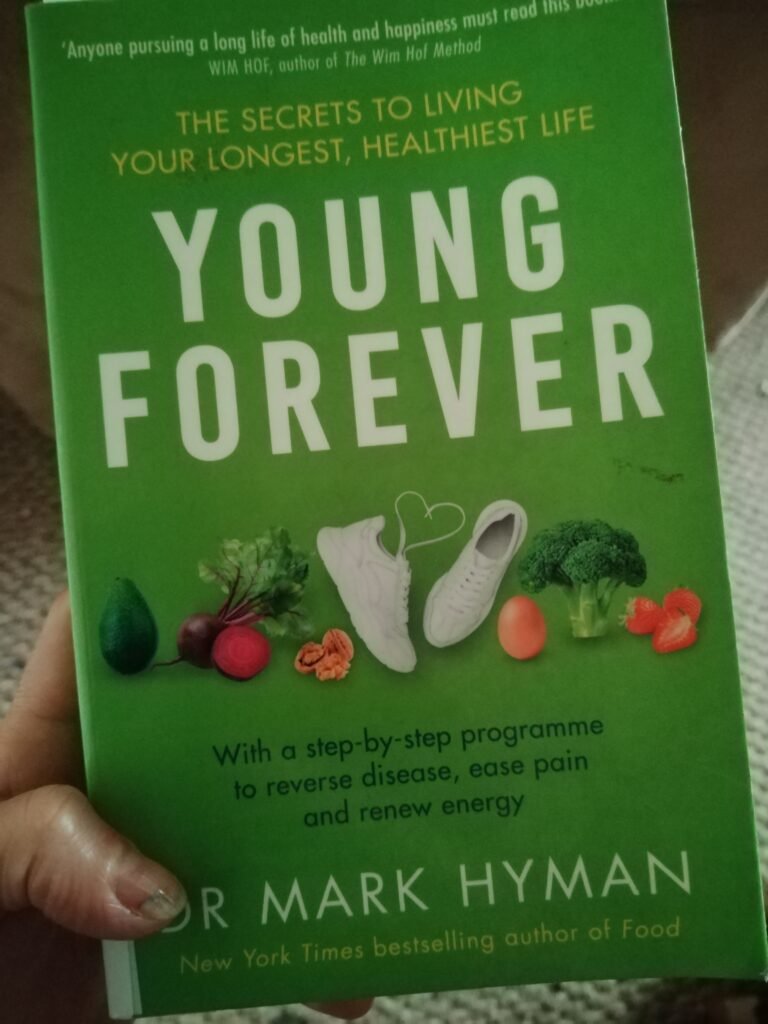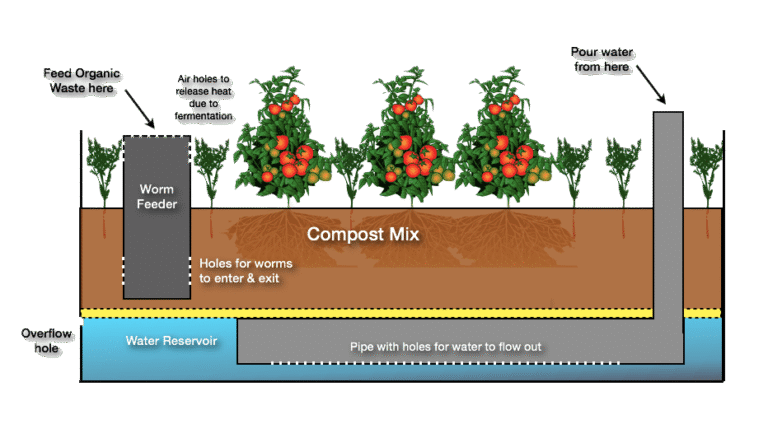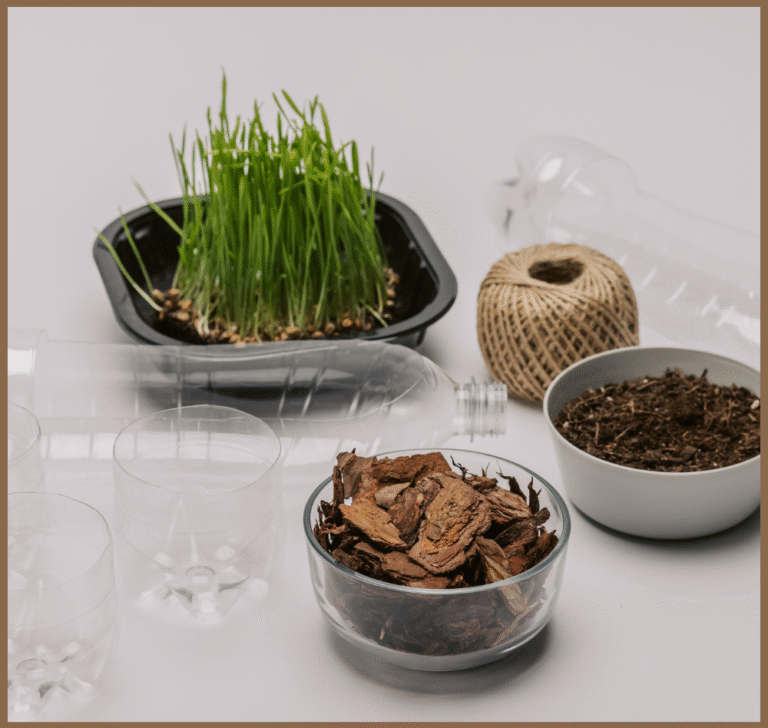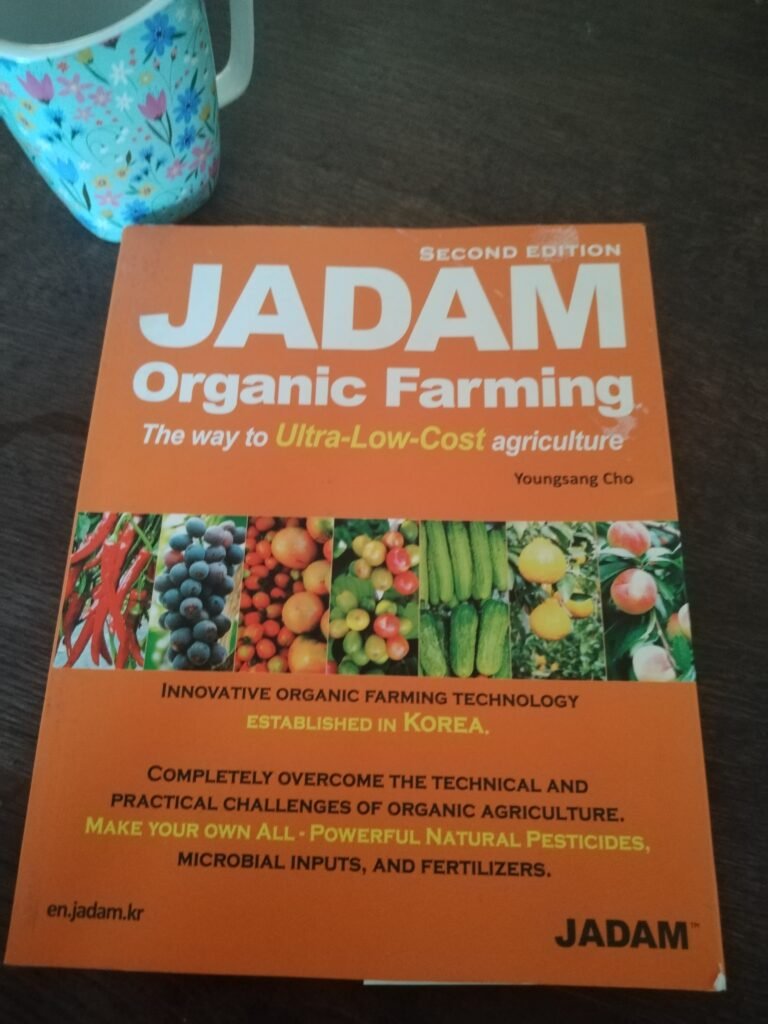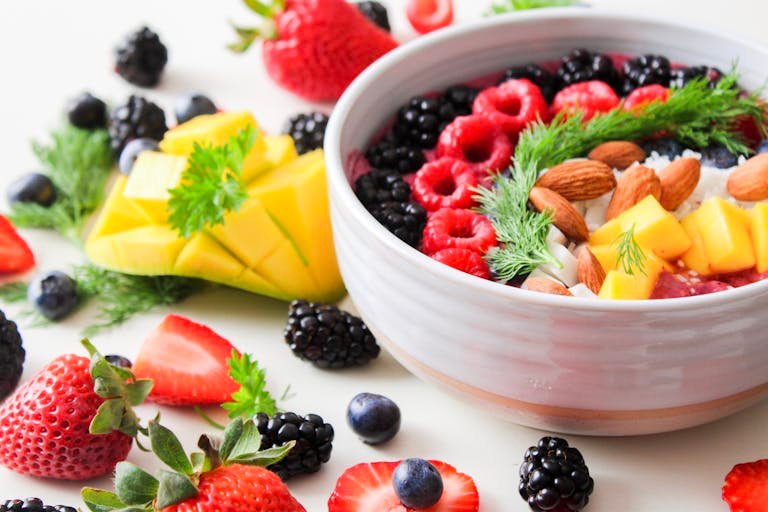I think its best to start this one with a little story which might explain how the food and mind connection started.
In my mid-twenties things were a bit up in the air. I had bounced back and forth between Germany and Ireland a few times after completing my apprenticeship as a tailor. As much as I loved Ireland just couldn’t see how I could make a decent living out of what I wanted to do.
This obviously resulted in not exactly the healthiest state of mind and consequently had me snacking on junk food most of the day. Somehow I hoped that the sugar content in the next chocolate bar would give my brain the revelation and energy to find a path where I could have it all. And a few of you might be laughing now as alcohol, drugs or cigarettes would have been the go-to for most young adults, but I was really quiet innocent in that respect.
However, haven’t said that, my mental state went from bad to worse. I remember a visit at home vividly, because, as I was the child again and my mum took care of all the obvious survival things, like shopping, cooking and laundry my sorry self had the time and space to completely dissolve in a hip.
I remember the turning point vividly. It was a rainy Tuesday when I stumbled upon “The Kitchen Shrink” – a book that would become my unexpected lifeline. At first, I was skeptical. How could the contents of my refrigerator possibly combat the mental health storm raging inside me? But desperation is a powerful motivator, and I was willing to try anything.
The book was a revelation. It wasn’t just another diet guide – it was a scientific exploration of how food directly impacts our brain chemistry. Did you know that 95% of your body’s serotonin – often called the “happiness hormone” – is produced in your gut? This single fact blew my mind! I learned that my diet wasn’t just fuel for my body, but medicine for my mind.
The books mentioned in this post are Amazon affiliate links. If you purchase through these links, I may earn a small commission at no additional cost to you.
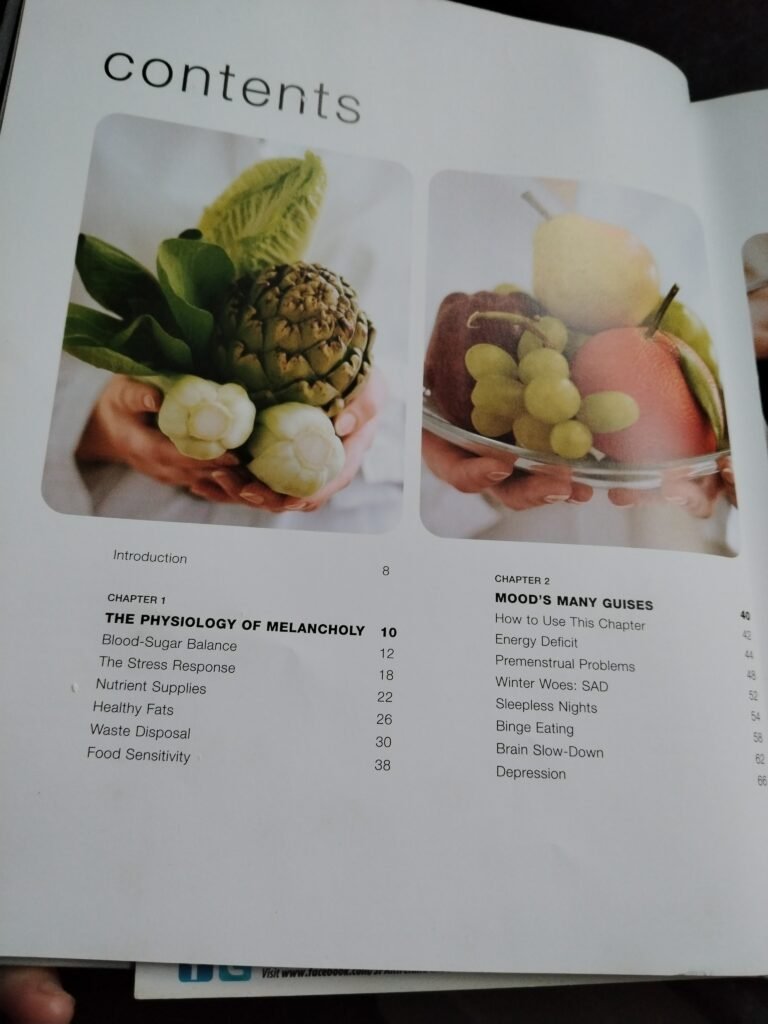
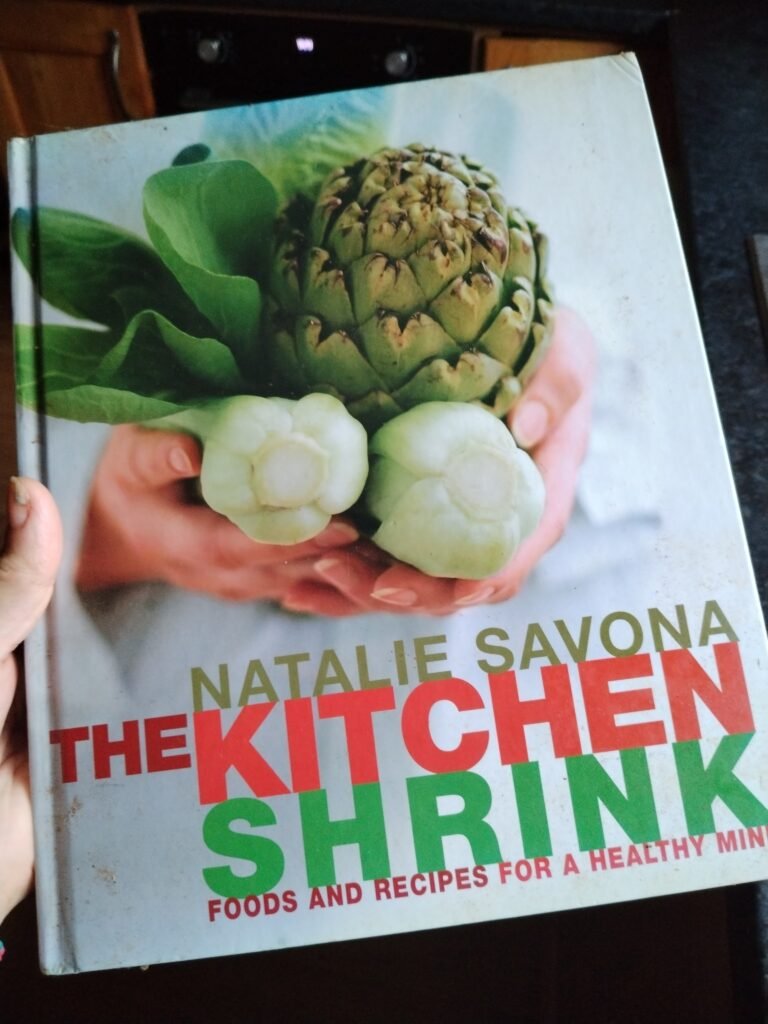
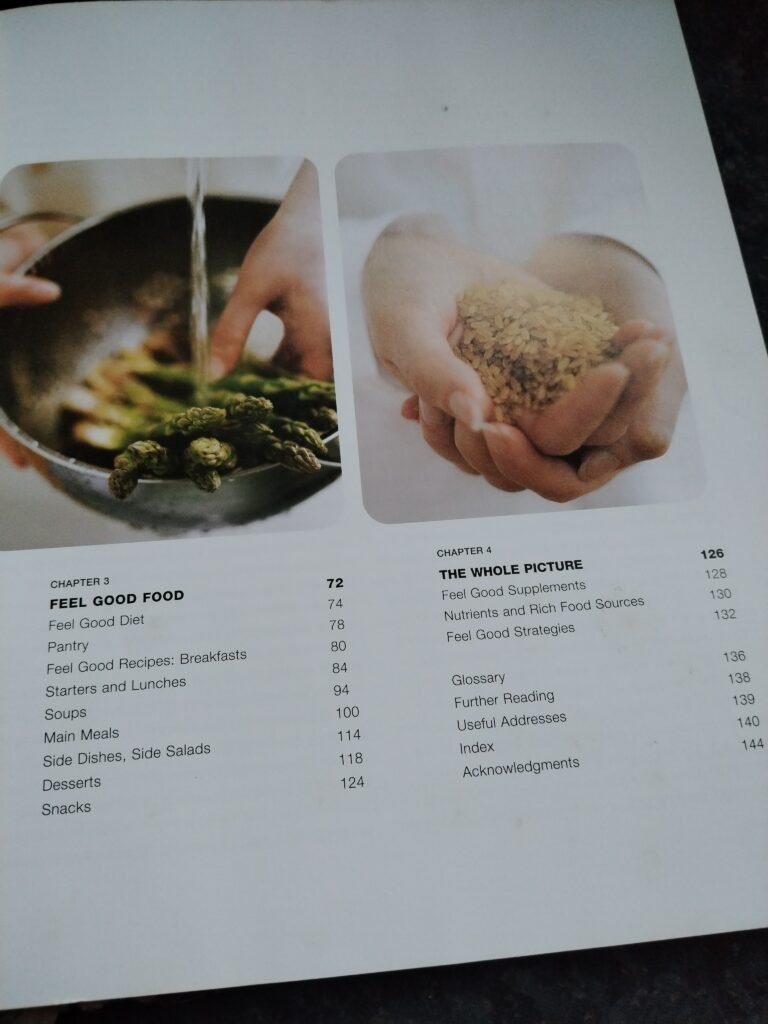
Slowly, I started implementing the book’s recommendations. I swapped out processed foods for nutrient-dense alternatives. Omega-3 rich fish, fermented foods, complex carbohydrates, and a rainbow of vegetables became my new staples. The changes weren’t overnight, but they were profound. Within weeks, the fog began to lift. My energy returned, my focus sharpened, and for the first time in months, I felt like myself again.
This journey taught me something crucial: what we eat doesn’t just affect our waistline – it profoundly impacts our mental well-being. Today, I’m here to share that knowledge with you, to show you how your kitchen might just be the most powerful pharmacy for your mind. Let’s dive deep into the fascinating world of food and mental health, and discover how every bite can be a step towards emotional wellness!
Understanding the Food-mind Connection
Imagine your brain and your gut are best friends, constantly chatting and sharing secrets—that’s basically what the gut-brain connection is all about. It turns out, the food you eat isn’t just fuel for your body; it’s like a mood-boosting, brain-powering magic potion. Scientists have discovered that our digestive system is basically a second brain, producing most of our body’s serotonin (you know, the feel-good chemical) and directly influencing how we think and feel.
Recent groundbreaking research in nutritional psychiatry is revealing some mind-blowing connections. A 2022 study published in Molecular Psychiatry found that participants following a Mediterranean-style diet rich in fruits, vegetables, whole grains, and lean proteins showed a 35% reduced risk of developing depression compared to those on a standard Western diet. Another fascinating study from the University of Melbourne tracked how a diet high in fermented foods and probiotics could potentially reduce social anxiety by positively influencing the gut microbiome. Even more exciting, researchers at Johns Hopkins have discovered that specific nutrients like zinc, magnesium, and omega-3 fatty acids can actually help regenerate brain cells and potentially slow cognitive decline.
The SMILES trial, a landmark study in nutritional psychiatry, demonstrated that dietary intervention can be as effective as traditional therapies for treating moderate to severe depression. Participants who followed a Mediterranean-style diet experienced significant improvements in their mental health, with some reporting mood improvements comparable to those achieved through medication.
It’s not about being perfect—it’s about understanding that every meal is an opportunity to support your mental wellness. Think of food as more than just nutrition—it’s like a daily dose of self-care for your brain, helping you feel more balanced, focused, and emotionally resilient. Who knew your next meal could be a powerful tool for mental health?
Essential Nutrients for Mental Well-being
When it comes to feeding your brain, not all nutrients are created equal—some are absolute superstars for mental health. In his groundbreaking book “Young Forever” Dr. Mark Hyman emphasizes that nutrition is the cornerstone of both longevity and mental wellness, highlighting how specific nutrients can dramatically influence brain health and emotional resilience.
Omega-3 fatty acids
are like brain heroes, playing a crucial role in neural communication and reducing inflammation. Found in fatty fish like salmon, walnuts, and chia seeds, these incredible compounds have been linked to reduced depression risk and improved cognitive function.
B-vitamins
are another mental health powerhouse, acting like tiny mood managers that help produce neurotransmitters. Vitamins B6, B9 (folate), and B12 are particularly critical, with deficiencies strongly associated with increased risk of depression and cognitive decline.
Dr. Hyman’s research underscores the profound connection between nutritional choices and long-term brain health, suggesting that strategic nutrient intake can actually slow cognitive aging and support emotional balance.
Minerals
deserve serious attention too—zinc acts as a natural mood stabilizer, magnesium helps regulate stress responses, and selenium supports overall brain function. Zinc-rich foods like pumpkin seeds and oysters, magnesium-packed spinach and almonds, and selenium-dense Brazil nuts can be your mental wellness allies.
Probiotics and fermented foods
are emerging as game-changers in emotional balance, with research showing that a healthy gut microbiome directly influences mood and mental health. Foods like kimchi, kefir, and kombucha introduce beneficial bacteria that communicate with your brain, potentially reducing anxiety and improving emotional resilience. Think of these nutrients as your brain’s personal support team—each playing a unique role in keeping your mental landscape healthy, balanced, and thriving.
Foods That Fight Depression and Anxiety
Let’s talk about your edible mood boosters—the foods that can actually help fight depression and anxiety. Drawing from Rosanna Davison’s transformative approach in “Eat Yourself Fit” we’re learning that nutrition is a powerful tool for mental resilience. Davison emphasizes how whole, nutrient-dense foods can be game-changers in managing mental health, highlighting the direct connection between what we eat and how we feel.
Berries,
especially blueberries and strawberries, are like little brain-protective powerhouses packed with antioxidants that help reduce inflammation and support neural health. A groundbreaking study published in the Journal of Nutritional Psychiatry found that participants who consumed a diet rich in these berries experienced a 39% reduction in depression symptoms.
Fatty fish
like salmon, mackerel, and sardines are mental health superheroes—a landmark 2021 study in the Lancet Psychiatry revealed that individuals consuming omega-3 rich fish at least twice a week showed a 45% lower risk of developing clinical depression.
Dark leafy greens
such as spinach and kale emerged as nutritional champions in a Harvard Medical School study, which demonstrated that participants with the highest intake of these nutrient-dense vegetables had a 30% lower risk of developing depressive symptoms.
When it comes to anti-inflammatory eating, Davison’s work aligns perfectly with the Mediterranean diet, which has been a game-changer in mental health research. The PREDIMED study showed that participants following this diet had a 33% reduced risk of developing mental health disorders. Meal timing is crucial too—research from the University of California found that eating smaller, balanced meals every 3-4 hours helps stabilize blood sugar and mood, preventing those emotional crashes that can trigger anxiety.
On the flip side, there are definitely foods to approach with caution. A comprehensive meta-analysis published in BMC Medicine revealed that processed sugars and refined carbohydrates can increase the risk of depression by up to 58%. Alcohol, while tempting as a stress-reliever, was shown in a 2022 National Institutes of Health study to disrupt neurotransmitter balance and potentially increase anxiety symptoms by 40%.
The research is clear: what you eat isn’t just about physical health—it’s a powerful tool for mental wellness. Each bite is an opportunity to support your brain, regulate your mood, and build emotional resilience. As Rosanna Davison advocates, food is not just fuel, but a form of self-care and healing.



Building Your Mental Health Menu
Crafting a mental health-supportive menu is like creating a personal wellness blueprint—it’s all about making nutrition deliciously simple and stress-free.
Start by batch prepping your weekly meals with brain-boosting powerhouses: think mason jar salads packed with spinach, salmon, and walnuts that you can grab quickly, or overnight oats with chia seeds and berries that take just minutes to prepare. Your pantry should become your mental health arsenal: stock up on staples like canned sardines, frozen berries, nuts (almonds, walnuts), whole grains like quinoa, and quick-cooking proteins such as canned beans and pre-cooked chicken.
For those crazy-busy weeks, create “emergency meal kits” with ingredients that can be thrown together in 15 minutes—a Mediterranean-style grain bowl with canned salmon, pre-washed spinach, and a quick tahini dressing can be a lifesaver. Meal planning doesn’t have to be complicated: use a simple Sunday routine where you prep protein, chop vegetables, and cook a big batch of grains that can mix and match throughout the week.
Pro tip for stressful times:
keep frozen vegetables, pre-cooked proteins, and quick-cooking grains on hand. A stress-management meal strategy might look like having three go-to 10-minute meals that you know will nourish you when cooking feels overwhelming. Think sheet pan salmon with pre-cut vegetables, a quick frittata with spinach and feta, or a grain bowl with rotisserie chicken and pre-washed greens. The goal isn’t perfection—it’s creating a flexible, forgiving system that supports your mental health without adding more stress to your plate.
Meal Prep Made Simple: Your Mental Health Nutrition Roadmap
The Foundation: Strategic Batch Cooking Think of meal prep as your mental health insurance policy. Start with a Sunday (or whatever day works best for you) batch cooking session that takes about 2-3 hours. Here’s a game plan:
- Protein Prep: Cook a large batch of proteins that can be mixed into multiple meals
- Bake 2-3 chicken breasts
- Prepare a big batch of salmon
- Cook a pot of quinoa or brown rice
- Hard boil a dozen eggs
Flexible Meal Components Create a “mix and match” system where you can easily assemble meals:
- Protein containers (pre-cooked and portioned)
- Washed and chopped vegetables
- Premade sauces and dressings
- Grain base options
Stress-Proof Meal Strategy For those overwhelming weeks, create an “emergency meal formula”:
- Grain base (quinoa, brown rice)
- Protein (pre-cooked chicken, canned salmon)
- Vegetable (frozen or pre-chopped)
- Quick sauce (tahini, quick pesto, olive oil + lemon)
Pantry Essentials Checklist Mental Health Nutrition Staples:
- Canned fish (sardines, salmon)
- Frozen berries
- Nuts and seeds
- Olive oil
- Canned beans
- Frozen vegetables
- Quick-cooking grains
- Herbs and spices
Budget-Friendly Meal Prep Hacks
- Buy in bulk and freeze
- Use frozen vegetables
- Rotate protein sources
- Buy seasonal produce
- Use canned and frozen options
Quick 15-Minute Meal Templates
- Mediterranean Grain Bowl
- Quinoa base
- Canned salmon
- Spinach
- Feta cheese
- Olive oil + lemon dressing
- Stress-Relief Frittata
- Eggs
- Frozen spinach
- Canned beans
- Cheese
- Microwave or quick stovetop cooking
- Instant Protein Salad
- Pre-washed greens
- Rotisserie chicken
- Canned beans
- Quick dressing
- Handful of nuts
Mindful Eating Strategies
- Eat without distractions
- Sit down for meals
- Eat slowly
- Practice gratitude before eating
- Stay hydrated
Technology Helpers
- Meal planning apps
- Grocery delivery services
- Prep-ahead recipe websites
- Nutrition tracking apps
Flexibility is Key Remember, this isn’t about perfection. Some weeks will be easier than others. The goal is to create a system that supports you, not stresses you out. If you only manage to prep two meals, that’s a win!
The Social and Cultural Aspects of Food and Mental Health
Food is far more than just nutrition—it’s a powerful social and emotional language that connects us deeply to our roots, relationships, and inner selves.
Communal eating has been scientifically shown to reduce stress, increase feelings of belonging, and improve overall mental health, with studies revealing that shared meals can lower cortisol levels and boost oxytocin, the “connection hormone.”
Different cultures offer incredible insights into food’s emotional healing potential: in Mediterranean cultures, leisurely family meals create spaces for connection and stress reduction, while Japanese practices like “washoku” emphasize balanced, mindful eating that nourishes both body and spirit. Mindful eating transforms meals from mere consumption to intentional, healing experiences—practicing techniques like eating slowly, savoring each bite, and fully engaging with your food’s texture and flavor can dramatically reduce anxiety and increase emotional awareness.
These practices aren’t about rigid rules, but creating gentle, sustainable rituals that honor your body’s needs and your emotional landscape. Think of your meals as more than just fuel—they’re opportunities for self-care, connection, and emotional restoration. Whether it’s a weekly family dinner, a morning ritual of enjoying tea mindfully, or preparing a cherished family recipe, these food practices become anchors of emotional well-being, helping you navigate life’s ups and downs with greater resilience and grace.
Conclusion
Remember, transforming your mental health through food isn’t about perfection – it’s about progress! By implementing the strategies we’ve discussed, you’re taking powerful steps toward better emotional wellness. Start small, perhaps with adding one brain-boosting food to your daily routine, and watch how your mind and body respond. Ready to take the first bite toward better mental health?

